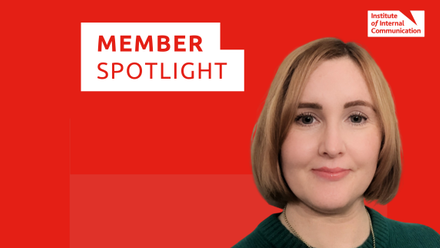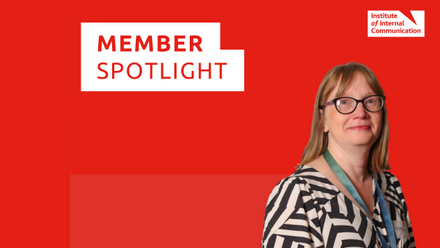How did you end up working in internal comms?
As an HR professional, internal communications has always been an integral part of my role. It is critical for business success and effective employee engagement. It is also a key driver of building trust and shaping the organisational culture.
Over the years, the need to connect employees without a desk has changed the way we communicate, and the emergence of communication tools has played a big part in bringing employees into the heart of the business. Our employees are our biggest asset that set us apart from our competitors. Internal communication is synonymous with human resources.
Why did you choose to pursue a Fellowship?
I am really passionate about communication and promoting it to the highest standard, which is what IoIC is all about. Communication is critical to many job roles and makes the difference between a good and bad manager, a successful or unsuccessful project and engaged or disengaged employees.
IoIC provides excellent guidance, resources and support. It recognises the diversity that professionals with different backgrounds bring to the sector and provides an opportunity to network.
During the pandemic, communication professionals all headed into the unknown and came into their own with the need to adapt quickly to keep employees up to date, in order to maintain trust and avoid worry and concern.
Knowing that there is support from people experiencing the same challenges who you can learn from makes a big difference. I am really proud of what IoIC stands for from both a professional and ethical standpoint and I am a great advocate, so becoming a Fellow was important to me to recognise this.
What has your career in internal comms taught you?
Like human resources, or people & culture, as I like to call it now, internal communication is pivotal to success and it sits at the heart of the organisation. It spans all departments and functions at every level of the business and requires a good oversight of everything that goes on. Building relationships based on trust is key to success as we often have access to privileged information as part of our role.
There is no substitute for open, honest communication. Timing is everything as silence can lead to mistrust, so it is important to let people know if you do not yet have all the answers.
What advice would you give to internal communicators who are at the beginning of their career?
First and foremost, the key to great communication is the ability to listen. Be curious and ask questions and don’t dismiss the people who challenge: almost always you will find hidden gems in their protests.
Secondly, start with the audience in mind. It does not matter how many times you deliver your message: if the audience is not hearing it, you need to change your method. The same message adapted to your particular audiences in terms of style, language, detail and delivery can greatly enhance understanding. This may seem obvious, but you will be surprised how many times this is overlooked.
Don’t underestimate what can get lost in translation when communicating with global audiences with different backgrounds and needs. Inclusion is the key to success.
Lastly, always challenge the notion that internal communication is not a profession – just look at the impact when it is not done well!






